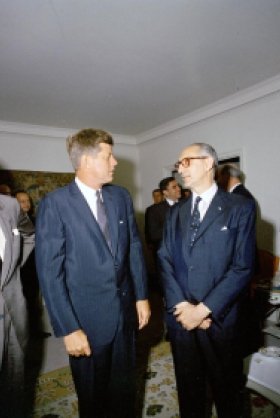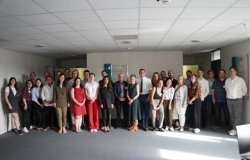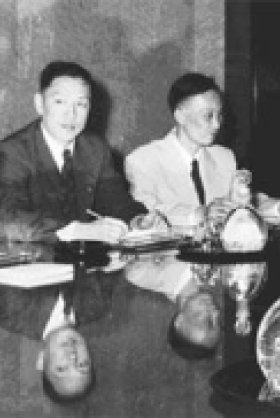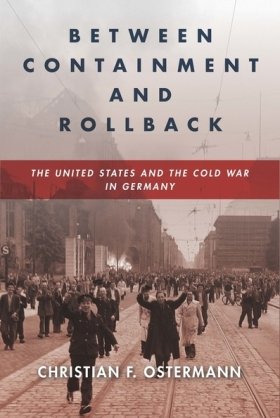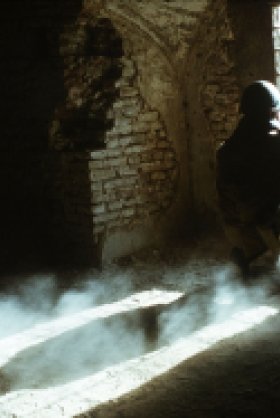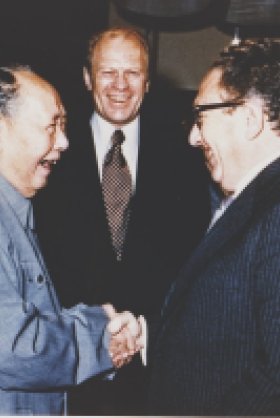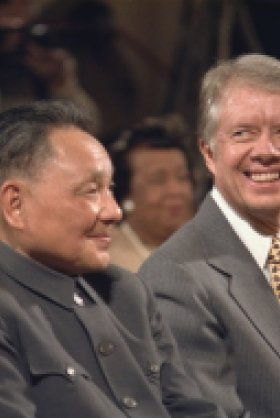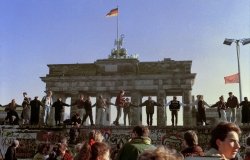Call for Papers: Exploring Ice and Snow in the Cold War
Call for Papers for the international conference Exploring Ice and Snow in the Cold War, Munich, Germany, 27-29 January 2011.
Call for Papers for the international conference Exploring Ice and Snow in the Cold War, Munich, Germany, 27-29 January 2011.
Paper proposals due 30 August 2010
The scientific exploration of extreme climatic conditions and hostile environments flourished during the Cold War. In the course of these years of confrontation between East and West, research on 'the cold' served ambivalent purposes. On the one hand, increasing knowledge about extreme climatic conditions seemed to guarantee political power and access to future resources. One the other hand, the very nature of the earth's surface and its characteristics challenged dichotomous ideologies of 'East' and 'West'. Events like the International Geophysical Year (1957-1958) structured global efforts to investigate the world as a whole. Spatial images of the 'blue planet' can be seen to be a result of the environmental knowledge gained through earth sciences. As the earth's climate influenced many aspects of human life, culture, and politics, the scientific perception of ice and snow needed to be investigated from different perspectives. Scientific disciplines such as meteorology, geophysics, glaciology and oceanography were part of the exploration of ice and snow.
This workshop is interested in new research projects at the interface of environmental history, military history and the history of science and technology to contribute to the discussion on the scientific perception
and constitution of nature in the Cold War.
Applications for any of the following research areas, but also proposals that deal with the workshop's topic from alternative perspectives, are welcome:
Sites of Knowledge:
-How did military strategy and politics influence concrete research projects and how did this knowledge flow back into society? Are there typical Cold War sciences dealing with ice and snow and which places, sites or laboratories were typical for these endeavors? Which infrastructures were required to explore ice and snow and what role did technology play in the construction of artificial environments?
Knowledge and 'the' Environment - Environmental Knowledge
-Did the Cold War foster or inhibit knowledge about the fragility of nature, and which scientific disciplines were involved in this process? When, where and how were issues of pollution addressed? Did knowledge motivated by military and strategic interests also play a part in
environmental contexts?
Metaphors, visions and narrations
-Epistemologically, ice and snow are objects that are shaped through different scientific perspectives and cultural narratives. Which metaphors, visions and narratives are associated with the scientific exploration of extreme climatic conditions during the Cold War?
The workshop Exploring Ice and Snow in the Cold War is supported by the Rachel Carson Center for Environment and Society in Munich and will take place at the Deutsches Museum in Munich from 27th to 29th of January 2011. Travel and accommodation costs will be met by the organizers. Applications must be written in English. Abstracts (500 words) and a short CV should be submitted by email no later than August 30th 2010 to the following address:
Dr. Christian Kehrt
Helmut-Schmidt-Universität
Neuere Sozial-, Wirtschafts- und Technikgeschichte
Holstenhofweg 85
D-22043 Hamburg
Email: kehrt@hsu-hh.de
For further information on organizational issues please contact:
Dr. Franziska Torma
Rachel Carson Center
Leopoldstr. 11a
D-80802 Munich
Email: franziska.torma@carsoncenter.lmu.de
The Rachel Carson Center is a joint initiative of LMU Munich and the Deutsche Museum supported by the German Ministry for Education and Research.
Related Programs

Cold War International History Project
The Cold War International History Project supports the full and prompt release of historical materials by governments on all sides of the Cold War. Through an award winning Digital Archive, the Project allows scholars, journalists, students, and the interested public to reassess the Cold War and its many contemporary legacies. It is part of the Wilson Center's History and Public Policy Program. Read more

History and Public Policy Program
The History and Public Policy Program makes public the primary source record of 20th and 21st century international history from repositories around the world, facilitates scholarship based on those records, and uses these materials to provide context for classroom, public, and policy debates on global affairs. Read more
